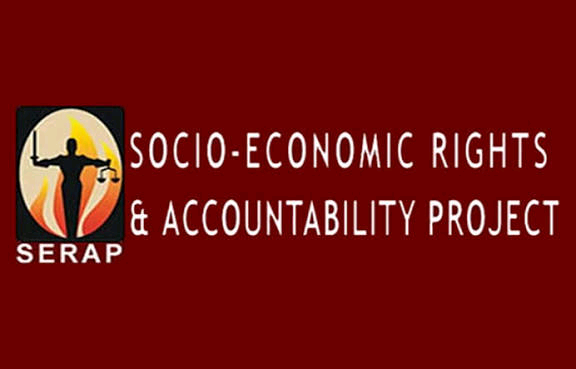• SERAP says action undermines anti-corruption fight and violates UN Convention
ATTENTION: Click “HERE” to join our WhatsApp group and receive News updates directly on your WhatsApp!
• Warns of possible legal action if decision not reversed immediately
• Notes presidential mercy powers must not promote impunity
The Socio-Economic Rights and Accountability Project (SERAP) called on President Bola Ahmed Tinubu to withdraw the recent presidential pardon granted to certain individuals convicted or serving jail terms for corruption-related offences. The organisation said the move violates Nigeria’s Constitution and contradicts international anti-corruption treaties to which the country is a signatory.
In a statement released on Friday, SERAP described the decision as “entirely inconsistent and incompatible with Section 15(5) of the 1999 Constitution (as amended)”, which mandates the Nigerian state to “abolish all corrupt practices and abuse of power.”
The group said: “We urge the Tinubu administration to urgently review and withdraw the pardon recently granted to those serving jail terms or convicted and sentenced for corruption. We’ll consider appropriate legal action if the presidential pardon is not immediately withdrawn or rescinded.”
According to the organisation, the presidential action contradicts Tinubu’s public anti-corruption stance and “undermines the authority and independence of the judiciary.”
SERAP further cited Articles 26 and 30 of the United Nations Convention against Corruption (UNCAC), which require state parties to ensure “effective, proportionate and dissuasive sanctions” for corruption-related crimes and to impose penalties that reflect the seriousness of such offences.
READ ALSO: SERAP to Governors, Wike: Account for N14trn Fuel Subsidy Savings or Face Legal Action
“The pardon for those convicted of corruption also constitutes interference in the exercise of judicial power,” the statement noted. “Because it appears arbitrary, it weakens the judiciary’s independence and access to justice for victims of corruption.”
While acknowledging that Section 175 of the Constitution empowers the president to exercise the prerogative of mercy, SERAP stressed that this power must be applied “ethically and in good faith”, warning that misuse of such discretion promotes impunity and unequal justice.
“When Section 15(5) is read together with the oath of office, it imposes an ethical duty on the president to ensure that the prerogative of mercy is not used to reward corruption or abuse of power,” the group added.
SERAP expressed concern that presidential pardons in Nigeria have repeatedly favoured influential politicians and politically exposed persons, while “ordinary citizens convicted of minor offences continue to languish in prison without consideration for clemency.”
“The constitutional power of prerogative of mercy ought not to be an instrument of impunity,” SERAP added.


